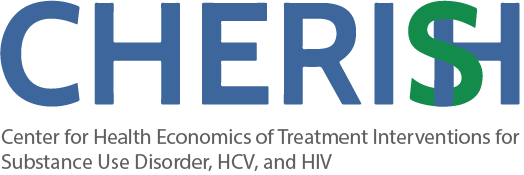
Contradictions That Confuse Federal Food Policies
Announcing Bold New Goals While Crippling the Infrastructure Needed to Achieve Them
Population Health
Blog Post
Produced in conjunction with the Center for Health Economics of Treatment Interventions for Substance Use Disorder, HCV, and HIV
Financial incentives are known to increase patient engagement in a wide range of health programs, including programs for maintaining abstinence from substances, attending vaccination and screening appointments, and increasing physical activity. However, they have rarely been used for mental health care beyond treating substance use disorders.
Showing up and being involved in mental health treatment is half the battle for patients, and our new study, a meta-analysis of existing research, shows that financial incentives can help. The study synthesized findings from 39 papers and found that patients who receive such payments are more likely to attend their mental health treatment, adhere to their medications for mental health disorders, and complete their mental health treatment goals like doing homework.
Effects of the financial incentives were large, with findings suggesting multiple ways in which incentives could be used, such as at the start of treatment to improve attendance for initial sessions, for preliminary treatment goals like signing a treatment plan, and for reducing dropout from psychotherapy, case management, or medication management. Findings also indicated that incentives to enhance treatment engagement might have beneficial downstream effects on mental health symptoms, functioning, and quality of life.
However, efforts to put these findings into practice have run into significant barriers. Some people worry that incentives may coerce patients into seeking treatment or undermine their autonomy, reduce their intrinsic motivation to engage in treatment, or cost too much for the health system to maintain. Research demonstrates, however, that providers and patients typically value these interventions once they are put into practice, and patients’ intrinsic motivation shows no sign of decreasing after receiving incentives. These financial interventions generally are cost-effective in the long term, particularly when factoring in patients’ potential work productivity or criminal justice costs.
What will it take to move this promising and effective strategy forward? A variety of strategies would help:
Research shows that paying patients can significantly improve their engagement in mental health treatment. It is time for practice to catch up with the evidence and for payers and providers to utilize financial incentives to improve mental health outcomes.

The review, “Do Financial Incentives Increase Mental Health Treatment Engagement? A Meta-Analysis,” was published in the June 2022 issue of the Journal of Consulting and Clinical Psychology. Authors include Gabriela K. Khazanov, Paige E. Morris, Alexander Beed, Shari Jager-Hyman, Karoline Myhre, James R. McKay, Richard S. Feinn, Elaine M. Boland, and Michael E. Thase.



Announcing Bold New Goals While Crippling the Infrastructure Needed to Achieve Them

Promising New Evidence and What’s Next

From 1990 to 2019, Black Life Expectancy Rose Most in Major Metros and the Northeast—but Gains Stalled or Reversed in Rural Areas and the Midwest, Especially for Younger Adults

A Penn LDI Seminar Focuses on Why They’re Important for the Future

Former Philadelphia Health Commissioner Warns That Gutting the CDC, Undermining Vaccines, and Politicizing Science Will Leave the U.S. Dangerously Unprepared for the Next Pandemic

Rural Parents Had More Emergency Visits and Insurance Loss Than Urban Peers, an LDI Study Shows. Integrated Baby Visits Could Help All Parents Be Healthier